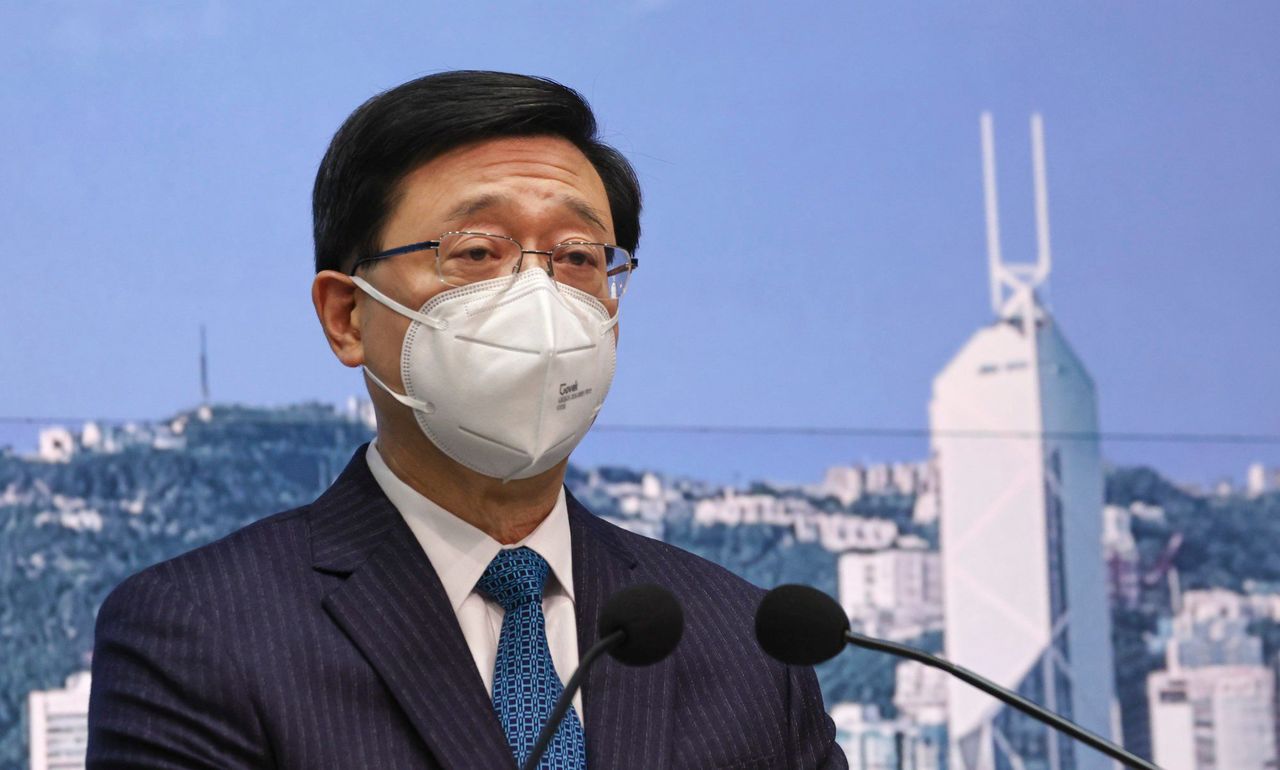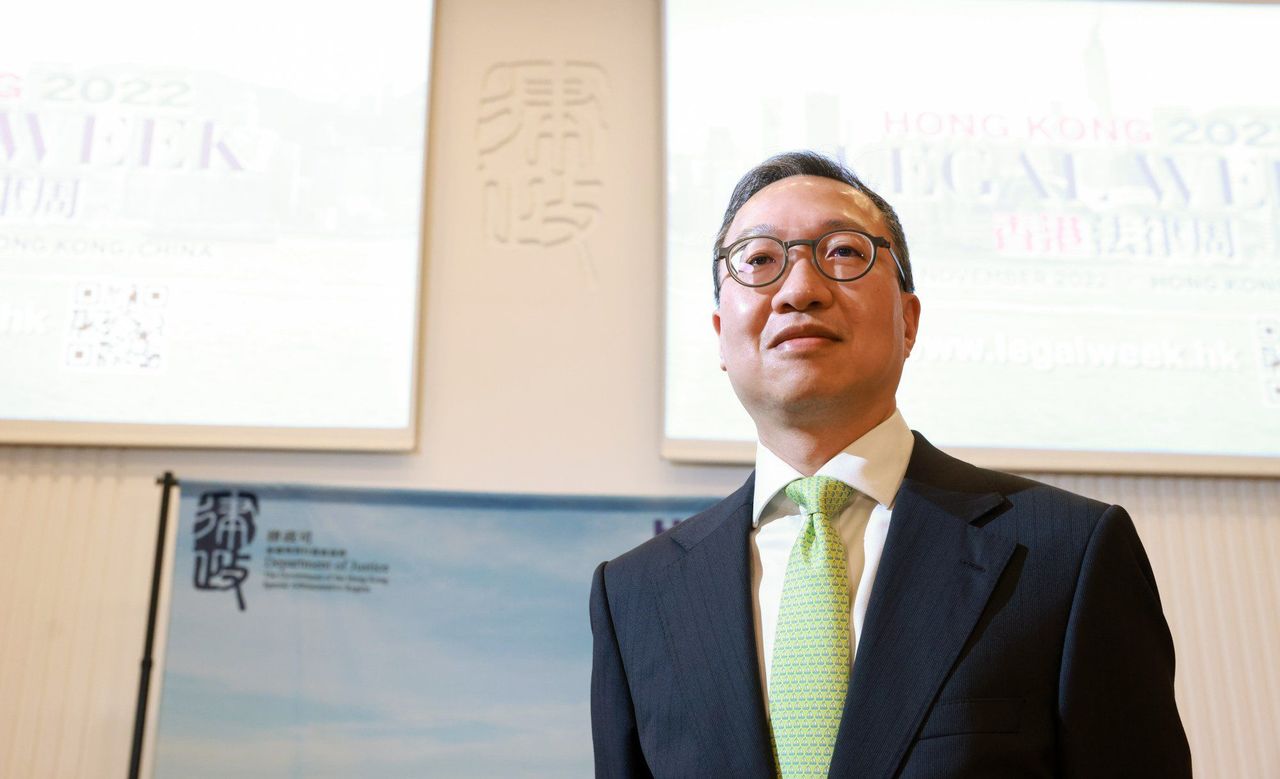Hong Kong News

What Beijing ruling on overseas lawyers in Hong Kong national security cases means
China’s top legislative body on Friday issued an interpretation of the national security law for the first time since it was imposed on Hong Kong two years ago and offered a way to end controversy triggered by media mogul Jimmy Lai Chee-ying’s bid to hire a foreign barrister to defend him on a charge of collusion with foreign forces.
Instead of handing down an outright ban on foreign lawyers in trials concerning the state’s interest as was expected, Beijing ruled the matter could be left to the city’s leader and a committee to decide.
Pro-establishment figures argued the ruling showed Beijing’s wishes to minimise the impact brought to the city’s judicial system, but some legal academics warned that it was no different from giving the government carte blanche to dictate terms.
Here is what you need to know about the ruling and what implications it has for the city’s legal system.
 Chief Executive John Lee.
Chief Executive John Lee. 1. What clauses did Beijing interpret?
The National People’s Congress (NPC) Standing Committee on Friday highlighted Article 47 of the national security law, which rules that the court should obtain a certificate from the chief executive to verify whether an act involved national security or whether the evidence featured state secrets when such questions arose in the adjudication of a case.
The committee ruled that the hiring of overseas lawyers came under Article 47 and required the chief executive’s input.
The top legislative body also mentioned Article 14 and said if the city courts had not made a request to obtain such a certificate from the chief executive, the Committee for Safeguarding National Security – headed by Chief Executive John Lee Ka-chiu and advised by Luo Huining, Beijing’s top representative in the city – would have to make a decision based on the situations and questions that was not subject to judicial review.
Article 14 lists the responsibilities of the Committee for Safeguarding National Security, which include the formulation of policy, advancement of the development of the legal system and coordination of relevant operations.
2. Are the chief executive and the executive branch granted new powers?
Yes and no, depending on who you ask.
Lee has several times dismissed suggestions that the latest interpretation would create extra power for him. He argued the right to issue a certificate to a court had already been spelled out in Article 47 when the legislation was imposed by Beijing two years ago.
Secretary for Justice Paul Lam Ting-kwok said it was still a matter for the court to decide on other issues and the outcome of the case and reaffirmed that the chief executive would not usurp the function of the court with certificates he issued.
But Johannes Chan Man-mun, a former law dean of the University of Hong Kong, argued that the interpretation “certainly” extended the power of the chief executive from certifying evidence to decisions on legal questions.
“Whether the evidence in this case involves national secrets or national security is a matter capable of chief executive certification. Once it is so certified, it is then for the court to decide how this would affect the admission of an overseas lawyer,” Chan said.
“Whether an overseas lawyer can be admitted has nothing to do with evidence as such. This is a substantive legal question which should be decided by the court but which is now left to the political judgment of the chief executive.”
3. What triggered the unprecedented interpretation of the national security law?
Hong Kong’s top court last month upheld a decision to allow prominent British barrister Timothy Owen to defend Lai, the founder of the now-closed Apple Daily newspaper. The court said a balance between safeguarding national security and protecting freedom of expression should be struck in the landmark case and that the admission of a high-calibre barrister would aid the development of the city’s jurisprudence.
Lee, hours after the government lost its ultimate appeal bid, decided to ask the National People’s Congress Standing Committee to interpret the national security law. He argued that there were “no effective means” at present to ensure that overseas counsel would not have a conflict of interest because of their nationality, that they had not been coerced or controlled by foreign agencies and that they would not divulge information such as state secrets.
The trial of Lai, at first scheduled to begin in December, has been adjourned to September.
 Secretary for Justice Paul Lam.
Secretary for Justice Paul Lam. 4. How would Lai’s case be resolved in light of the interpretation and what are the options?
Secretary for Justice Paul Lam Ting-kwok said on Saturday that, given that the court had not obtained a certificate from the city leader in the Lai case, the committee for safeguarding national security would step in.
He said there were “serious suggestions” that the Legal Practitioners Ordinance should be amended so overseas counsel who are not qualified to practice in Hong Kong would no longer be allowed to apply for one-off admissions to be involved in cases with national security implications.
“It will be up to the committee to decide following its meeting on whether to handle the issue in a one-size-fits-all or case-by-case manner,” he added.
A senior government source said Lee’s administration had no intention of challenging the top court’s decision and was instead inclined to resolve the problem with amendments to legislation.
Lee is expected to hold a meeting of the national security committee soon to suggest amendments to the ordinance, the source said.
The administration hoped the bill would be passed before Lai’s trial starts, the insider added.
But Professor Simon Young Ngai-man, an associate dean in research at the University of Hong Kong’s law school, argued that legislative change was prospective, not retrospective and could not change the decision to admit Owen.
He suggested that the new interpretation represented a “sufficient material change” in circumstances to warrant an application by the secretary for justice to have the matter reopened by the Chief Justice, who is now expected to raise the issue and seek a certificate from the chief executive.
“Indeed, this would be better than an intervention by the committee,” he said.
5. How do different sectors react to the interpretation?
Beijing’s ruling was welcomed by the government and its supporters, who mostly praised the resolution because it created a mechanism for the resolution of similar problems in the future and guarded against foreign forces’ interference in Hong Kong’s affairs.
Professor Albert Chen Hung-yee, who specialises in constitutional law at the University of Hong Kong, highlighted that Beijing had tried to minimise the impact on the city’s judicial system by leaving the ball in the city government’s court instead of imposing a ban on foreign lawyers.
“It has exercised restraint in a way that is not contrary to the ruling of the court,” he said.
But some legal academics said they were concerned by the interpretation, which they insisted had given the executive branch wide authority before the court.
“Unfortunately the interpretation is substantially lacking in defining the limits of executive authority under Article 14 and the scope of the duties on the court under Article 47. We can only hope that the committee and chief executive acts with restraint under these Articles, and the limits we come to expect in a rule of law society will be self-imposed and adhered to,” Young said.
Chen, a Basic Law committee member, admitted frequent issuing of certificates by the chief executive under Article 47 could affect the city’s rule of law, although he said he believed the administration would exercise restraint in their use.
The Hong Kong Bar Association on Saturday appealed to the chief executive and the committee to exercise their power in a way that “fosters the public’s trust in upholding the rule of law, judicial independence and protecting human rights”.











